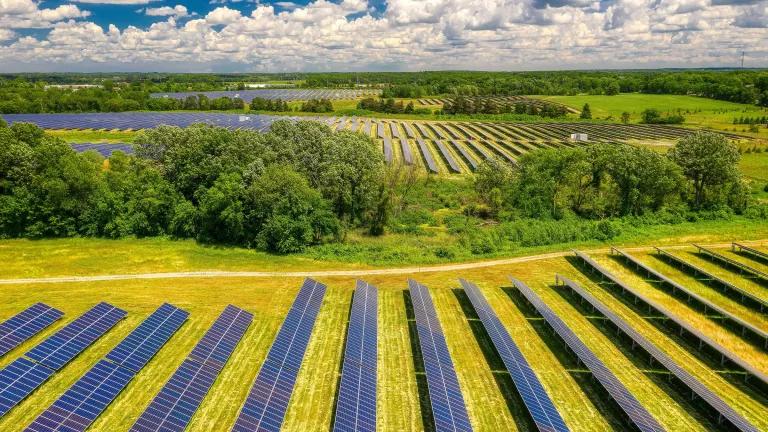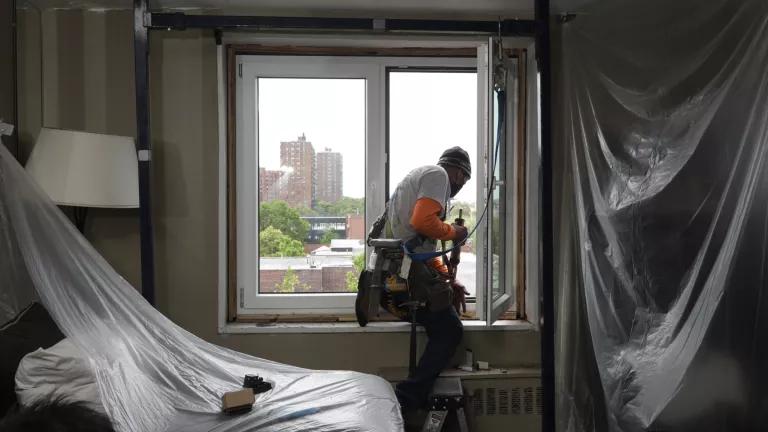Lessons from Chernobyl

Note: the following contains spoilers for the HBO Chernobyl series.
A man bends down to pick a rock off the ground like a child captured by the way it shimmers. He holds it out to show his friend, wondering what it could be. He has not been warned. A minute later he’s whimpering and clutching his hand. The flesh on his palm has melted to the bone.
A dog looks up from feeding her new pups. A man stands in the doorway. The dog thought she’d been abandoned and yet here he is. She is happy to see him. She trusts him. She does not know that he has been sent to shoot her and each of her puppies.
A woman sits by her husband’s bedside. He is dying, slowly and painfully. As his veins, skin, and organs dissolve, there is no way to ease his suffering. The only thing to do is hold his hand. To be there for him. But the price for this simple act will be the life of their child barely growing in her belly.
These are some of the horrors of a nuclear accident that HBO’s Chernobyl hauntingly plays out for us in the five-part mini-series which concluded this week. The show captures the extreme potential of destruction that lies within nuclear power plants. My parents’ generation grew up with the fear of nuclear Armageddon. But with the end of the Cold War and the presence of nuclear power in our lives, it can be easy to ignore the unfathomable dangers of radiation.
That’s why, as the climate crisis looms large and we all search for a miracle, many argue that nuclear power is the silver bullet. They hold up the positives that nuclear energy can provide while dismissing the risks as so unlikely as to be unrealistic. Chernobyl, then, comes at an important junction. The lessons it gives us regarding nuclear power—and power in general—should not be ignored.
Even though we’ve been lucky enough to avoid more than a handful of major nuclear incidences since the dawn of the nuclear age, there are still everyday impacts of nuclear energy that cannot be ignored. “For 50 years, nuclear power stations have produced three products which only a lunatic could want: bomb-explosive plutonium, lethal radioactive waste and electricity so dear it has to be heavily subsidized. They leave to future generations the task, and most of the cost, of making safe sites that have been polluted half-way to eternity,” James Buchan wrote in The Guardian in 2002. And this leaves out the impacts of uranium mining and the fact that nuclear energy is the most water intensive way to produce energy, both of which are extremely concerning in a world of declining drinking water resources.
So while the beneficial low-carbon attributes of nuclear energy cannot be denied, we also must take seriously the significant risks that this technology imposes on society even when there isn’t a catastrophic meltdown like there was in Chernobyl.
(For more on these issues, check out what’s currently happening with the waste legacy of the nuclear weapons complex and NRDC’s suggested solution to the ever-growing problem of nuclear waste, as well as our ideas on a pathway forward on climate even while transitioning away from uneconomical nuclear power plants.)
The true lesson the HBO mini-series imparts is also vital to keep in mind right now. The show is not really about nuclear energy, but what happens when truth is left untold. In the HBO show, we learn that the Chernobyl accident occurred due to a known flaw in the plant’s safety mechanism that had been hidden even from the operators because the Soviet Union did not want to appear weak. A viewer may mistake this to mean that a nuclear accident on this level was only possible because of the culture prevalent during the Cold War.
Think again.
Consider that after the 2011 Fukushima Daiichi nuclear power accident in Japan, it came out that the operator had “refused to recognize and fix problems because it did not want to jeopardize the so-called safety myth that Japan’s nuclear technology was infallible.” New York Times. And that the U.S. Nuclear Regulatory Commission—the federal agency charged with overseeing nuclear power plants—continues to ignore the risks of a hydrogen explosion at U.S. plants that the Fukushima accident unveiled. As Boris Scherbina so succinctly put it in the show as he describes the land that is Chernobyl: “Dead Jews. Dead Poles. But not them. No one ever thinks it’s going to happen to them.”
But we cannot afford to hide, ignore, or forget the true impacts of any energy source in making our energy choices for the future, and especially not the lessons of Chernobyl.
That’s why the ending of Chernobyl made me shudder, as it closed with a scoffing: “Why worry about something that isn’t going to happen?”




